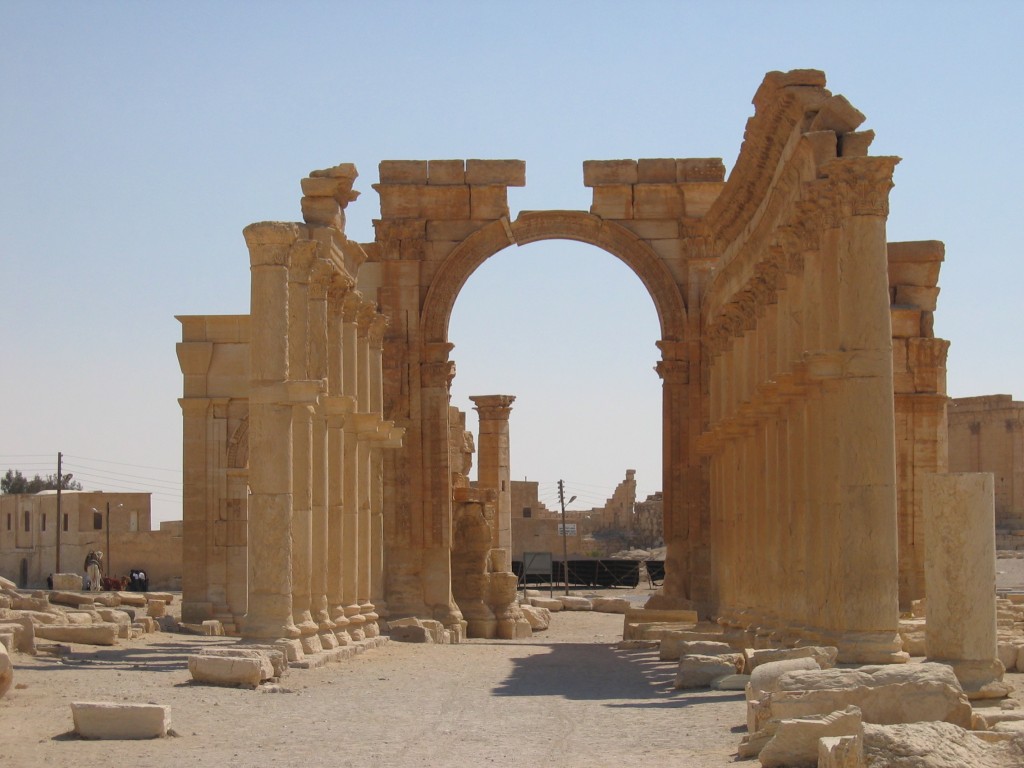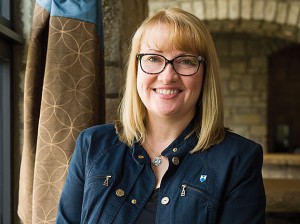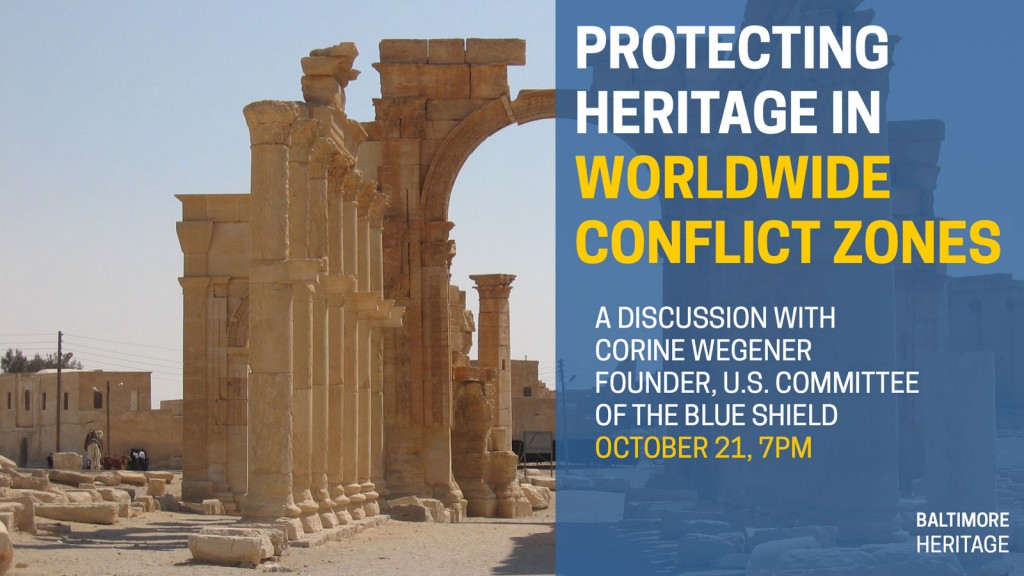Over the last several years, we have all watched aghast at the images of ancient statuary, irreplaceable temples, and priceless historic artifacts are that damaged and destroyed by violence and theft in conflict zones around the world. Just today, we read about the terrible news that the Islamic State has blown up the Triumph Arch in the Syrian city of Palmyra, an iconic 2,000 year-old landmark within a UNESCO world heritage site.

I know I’m not alone in feeling almost helpless to stop this heart-breaking destruction in places half-way around the world. I also know I’m not alone in wondering what people around the world are doing to prevent these losses. While the challenge is immense, the good news is that there are indeed people and groups working hard to protect our global heritage in war zones. We are pleased to bring a leader in this field to speak to our community in Baltimore: Corine Wegener from the Smithsonian Institution.
 Ms. Wegener is a founder of the U.S. Committee of the Blue Shield, a nonprofit organization dedicated to protecting cultural property worldwide during armed conflict, and helped lead efforts to recover artifacts for the National Museum of Iraq after looting there. She works throughout the world helping museums protect against looting, strengthening international laws to safeguard antiquities, and engaging front-line soldiers on the importance of shared culture.
Ms. Wegener is a founder of the U.S. Committee of the Blue Shield, a nonprofit organization dedicated to protecting cultural property worldwide during armed conflict, and helped lead efforts to recover artifacts for the National Museum of Iraq after looting there. She works throughout the world helping museums protect against looting, strengthening international laws to safeguard antiquities, and engaging front-line soldiers on the importance of shared culture.
We hope you can join us for a talk by Ms. Wegener on October 21 with a wine and cheese reception following. Our host is the First Unitarian Church of Baltimore, a historic treasure of its own. Built in 1818 and designed by noted architect Maximilian Godefroy (who also designed Baltimore’s Battle Monument on Calvert Street), the church is the oldest Unitarian building still being used in the country. Please get in touch with any questions and come out to learn more about this important international preservation issue.

